Welcome
Boarshaw Primary School
Firstly, a warm welcome to Boarshaw Primary School. We are a diverse, inclusive, 2 form entry primary school. Our pupils range from Nursery to Year 6. We have a Designated Unit for Speech, language and Communication Needs.
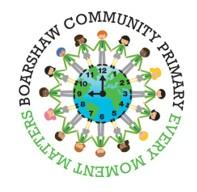
We pride ourselves on offering a welcoming, calm, safe and exciting place to learn and achieve.
Our school motto is ‘Every Moment Matters’ and this is our belief for every child, parent/carer and member of staff.
We look forward to seeing your child develop as we embark on this exciting journey together.
Designated Unit for Speech, Language and Communication (SLCN)
We are committed to safeguarding the pupil in our care. Please see the school website for all safeguarding policies and procedures, including the list of the safeguarding team at Boarshaw.
‘Every Moment Matters’
Our Golden Thread
Why Nurture?
The 6 Principles of Nurture
nurture nouncare, encouragement, and support given to someone or something while they are growing







1. Children’s learning is understood developmentally.
At Boarshaw Primary School, nurture is at the heart of everything we do. ‘Nurture’ is not a room that children go to, nor is it the adult they work with. It is everything we believe and do. It is our whole school ethos.
2. The importance of nurture for the development of wellbeing.
Nurture is the welcome we give, activities we plan, the environments we create, the structures we put in place and the support we give to children and their families.
Nurture is who we are; every member of staff that works at our school has to believe in the importance of nurture.
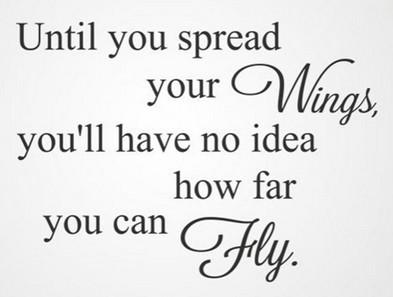
3. All behaviour is communication.
We believe that children who are nurtured are happy, content and successful. We want our children to thrive, feel safe and be included.
4. The classroom offers a safe base.
5. Language is a vital means of communication.
6. The importance of transition in children’s lives.
What is a designated unit?
Most children with SEND, including those with an Education, Health and Care Plan, will be supported in mainstream school. Sometimes a school will provide additional specialist facilities on site called a designated unit.
Designated units cater for pupils with an EHCP, who require a specialist environment within a mainstream school to support their access to the curriculum and activities offered by school.
In SRP pupils spend most of their time (usually well over 50% of their timetable) in mainstream classes. They only attend the SRP facilities for individual support, to learn a specific skill. The facilities can be in a suite or dispersed throughout the school. Pupils in a Unit spend the majority of their time there, only attending mainstream classes for a few lessons, such as PE, for assembly or for lunch. Pupils in both settings are on roll at the mainstream school. In both SRP and Units the facilities are additional to those normally provided in a mainstream school to support special needs, such as a SEN resource room.
Please look at the designated unit’s page on the school website for all information.
www.boarshawprimary.co.uk
Meet the Staff
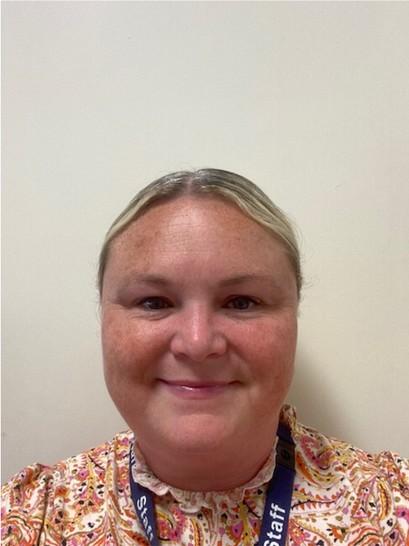
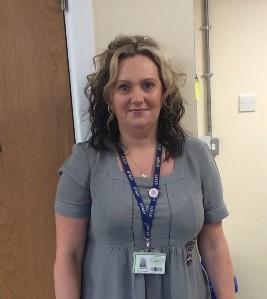
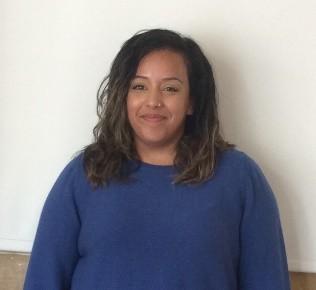
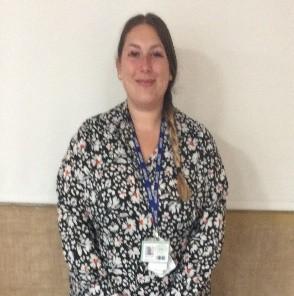

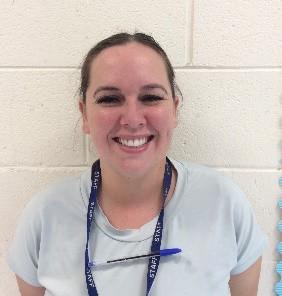
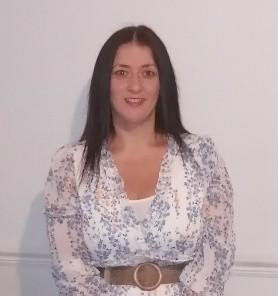

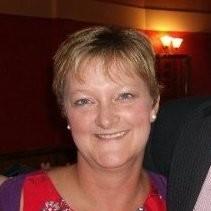
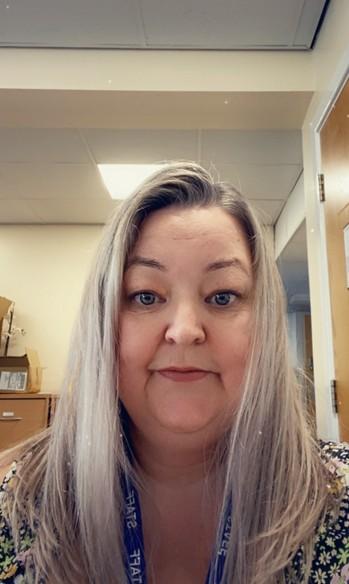

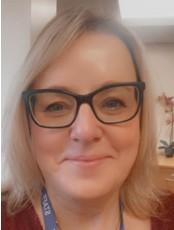
Please refer to the school website for the full staff list
 Mrs Head Mrs Deputy SENDCo
Mrs Parr School Business Manager
Mrs Meehan Administrative Assistant
Evans Pastoral Lead Lead
Miss Miss Burns TA2+ Miss Halliday TA1+
Farrell TA1+ Ahmjad TA1+
Mrs Harland Head Teacher Mrs Facchin Deputy Head and SEND Co School business manager
Mrs Meehan School administrator
Mrs Evans Pastoral support Mrs Deadman SALT TA
Miss Burns TA2 Miss Ahmjad TA1
Mrs Farrell TA1 Miss Halliday
Mrs Head Mrs Deputy SENDCo
Mrs Parr School Business Manager
Mrs Meehan Administrative Assistant
Evans Pastoral Lead Lead
Miss Miss Burns TA2+ Miss Halliday TA1+
Farrell TA1+ Ahmjad TA1+
Mrs Harland Head Teacher Mrs Facchin Deputy Head and SEND Co School business manager
Mrs Meehan School administrator
Mrs Evans Pastoral support Mrs Deadman SALT TA
Miss Burns TA2 Miss Ahmjad TA1
Mrs Farrell TA1 Miss Halliday
School Uniform and essential items



School uniform is –
Black pants, joggers or skirt
White polo shirt
School jumper or cardigan
Lilac summer dress
Black book bag
Other essentials
Wellies!
Outdoor coat
Spare clothes and underwear, in a bag
Nappies, wipes etc
Drinking cup
Snacks
Please put names on everything!

Our Environment
The Cove - the communication base


This is the room where core learning for communication and language and literacy takes place. The set-up of the room promotes independence and learning in reading, writing, phonics, listening, speaking and other forms of communication. This learning maybe child initiated or adult directed tasks. The activities support children's sensory integration, providing them with a wealth of sensory activities throughout the day.
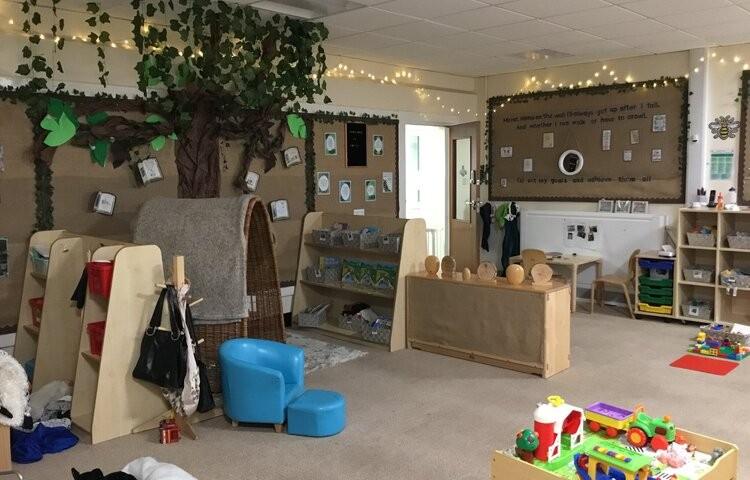
This room also facilitates learning in physical development (PE), understanding the world (history, geography, science, ICT and expressive art and design. (art and design, design and technology).

Our Environment
The Rockpool –the maths base

This is the room where core learning for mathematics takes place. The set-up of the room promotes independence and learning in maths, science, technology, reading, writing, listening, speaking and other forms of communication. This learning maybe child initiated or adult directed tasks. The activities support children's sensory integration, providing them with a wealth of sensory activities throughout the day.
This room also has an outdoor space that supports pupils’ sensory needs.
Our Environment
The Sea Shell - the sensory room

This room is directly attached to The Cove and is used throughout the day for timetabled sensory activities as well as a break out room for children who need to reregulate. The room provides a range of activities to help regulate a child’s sensory system. You can find out information about sensory systems and about what we do to support a child's sensory needs on the school website.
This room is also used to promote physical development and a child’s gross motor skills. The children will explore how to move in different ways, using the equipment.

Organisation of the day/week.

The organisation of the day is flexible and changes as the needs of the children change. Children will mix across the bases and have time tabled outdoor time. Whilst in the bases, children will engage in play-based learning activities, take part in focused interactions, sensory diet activities, movement programmes, learn routines and key skills.
Communication skills
Joint attention
Shared attention
Using signs to communicate
Using symbols to communicate
Using VOCA to communication
Using visual timetables to understand routine
Using now and then boards to encourage participation
Using choice boards to develop engagement
Social skills
Developing relationships with key worker and other adults
Developing relationships with peers
Taking turns and sharing
Routines
Routine and structure will form a key part of the unit. Children will be taught how to use visual timetables, now and next boards and choice boards throughout the day.
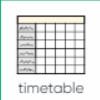
These routines will help pupils to engage in learning activities throughout the day and are a fundamental part of supporting non – verbal children. We will use visuals and signing to help children learn a range of routines, such as;
Good morning time
Snack time
Learning time
Playtime
Dinnertime
Outdoors time
Home time
These routines will help children to ‘learn how to learn’.
Curriculum

Our curriculum is designed with the children at the centre of learning. Activities that are delivered using a variety of approaches and the work is adapted as appropriate to pupils’ abilities and interests. The curriculum is designed to meet the needs of the whole child beginning with those identified as a priority in the EHCP these include:
- Cognition and learning
- Communication and Interaction
- Social, Emotional and Mental Health
- Physical and Sensory.
We strive to provide a personalised approach which incorporates advice from therapists and healthcare professionals.
Our curriculum develops through three pathways and learning is delivered using a variety of approaches.
Pathway 1- Experience (non-subject specific)- Skills are developed in a sensory and physical way.
Pathway 2- Exploration (Pre- subject specific)- Skills, concepts and essential knowledge are delivered in a structured, sensory and physical way.
Pathway 3- Investigation (Subject specific learning)- Skills, concepts and knowledge are delivered in a more formal learning environment and manner.
Curriculum

Pathway 1- Experience (non-subject specific)- Skills are developed in a sensory and physical way. Within this pathway pupils are given time and opportunity to explore the world around them. Learning focuses on a sensory approach, encouraging all children to engage in learning experiences. The curriculum in this pathway supports pupils to be safe, happy and healthy and experience as much of the world around them as possible. Learning is personalised around advice from therapist and other professionals and the pupils EHCP. Within this pathway children are learning to learn and sessions are planned to develop pupil’s engagement.
Pathway 2- Exploration (Pre- subject specific)- Skills, concepts and essential knowledge are delivered in a highly structured, sensory and physical way.
Within this pathway pupils develop through exploring the world around them and develop independence in skills-based objectives. Pupils will learn, develop skills and concepts required to become more independent. Pupils will begin to develop functional expressive communication through a range of different means. They will form secure relationships with adults who support their engagement in adultled activities. Pupils are supported to become increasingly independent through adult modelling, sabotage play and reducing adult support. Behaviour for learning is also developed during this pathway and children are supported with sensory and emotional regulation. Within this pathways English and Mathematics skills are embedded within each area of learning. Pupils interests and motivators are used as vehicles during this phase to engage them. Children build strong relationships with staff and a mixture of child led and adult led learning supports pupils to develop functional self-help, play and communication skills.
Pathway 3- Investigation (Subject specific learning)- Skills, concepts and knowledge delivered in a more formal learning environment and manner.
Within this pathway pupils investigate the world around them in a more formal learning environment. Pupils in this pathway will begin to make links and develop their communication to develop understanding of ideas and concepts. Within this pathway pupils are provided with the skills, concepts and knowledge to meaningfully engage in the world around them. Children will form secure relationships with adults and peers and understanding of their emotions is central to learning. They will develop resilience and develop confidence to share their feelings. Pupils will engage in a range of experiences including topic and curriculum focused tasks. Teaching and learning will take place through a range of interactive means including play and discovery. This phase integrates a child-led approach based on pupils interests as well as more formal approaches to learning. Within this phase children are supported and encouraged to develop investigation, expression and independent skills. Each pupils’ individual needs are fully met both educationally, socially, emotionally and physically.
Assessment

Assessment is an integral part of our teaching and learning process and is based on each child’s learning priorities and progress. Our assessment procedures ensure that learning is personal to the child and their current stage of development built upon sequentially. Within the SLCN unit all child’s achievements are recognised, valued and built upon. We use an electronic system called Evisense to capture, and record pupils learning. This online platform allows staff to share pictures and link specific areas of learning for each child. This allows staff to recognise pupils’ achievements and plan appropriate next steps. Evidence of pupils learning on Evisense is also shared with parents.
Achievements recorded on Evisense then directly feed into our assessment system Connecting Steps this allows staff to monitor pupils progress and set appropriate next steps for learning. Within the unit children will be working at different stages and this software enables learning on all three pathways to be recognised and recorded. The recording system has three main frameworks Communication and Interaction. Early Steps and Primary Steps which enables staff to record pupils learning from non-subject specific learning to subject specific learning covered in the EYFS and National Curriculum. Further to this the engagement model is used to provide a holistic assessment of pupils not engaged in subject specific learning. Staff will observe and record children’s learning within the five areas of engagement, exploration, realisation, anticipation, persistence and initiation to create their own individual engagement profile. This then allows staff to reflect upon and implement different ways to increase engagement.
Boarshaw Learning Plans

All pupils have a leaning plan, which has the child’s EHCP targets and targets in core subjects. These are shared with all staff and parents and are working documents, that are updated when needed. They are displayed in the classroom so that all staff are aware of an individual target at all time. We ask parents to contribute to this by telling us an aspirational target you wish for your child.

Parental Engagement

You know your child better than anyone and will play a key role in their education. It is important that you let us know how they are feeling, if they have had a difficult night or morning, if they are unwell or if any changes. This way we can ensure your child is supported as well as they can be.
If you have any questions or concerns, please ask and we will do our best to answer ��
We have different ways of communicating with you to make it as easy as possible;
Home/school communication book
Class Dojo
Tapestry/B squared
At the door in the morning or end of the day.
We will also invite you in to school events throughout the year. The children in the unit will be included in the same activities as their peers, if appropriate. For example; a trip to the zoo or farm, nativity play and whole school theme days. We will support you and your child as much as possible so that you included in the life of the school.
Important information
Inform school if your child is going to be absent – 0161 653 9536 or office@boarshawprimary.co.uk

If you child has vomited they need to be clear for 24 hours, diarrhoea for 48 hours, before returning to school.
School doors open at 8.45am-9am.
School finishes at 3.15pm
What on Earth does it mean?!
Attention Autism –
Attention Autism is a learning approach that aims to:

Gain, sustain and develop attention
Improve joint attention
Develop shared enjoyment in group activities and 1:1 activity
Increase attention and cooperation
Encourage communication
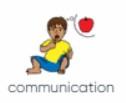
Intensive Interaction – Intensive Interaction is an approach to helping children and adults who are in the early stages of developing communication and social skills. The approach is based on the way we observe and respond to the actions and noises of babies, and interpret these as communication. It helps a person and their communication partner to connect and enjoy each other’s company more. It’s about watching closely how a child or adult responds to different situations through their body language, voice and facial expressions – and responding to this. Intensive Interaction is two-way communication and can be used at all times in all environments
Shared/joint attention –Joint attention is a behaviour in which two people focus on an object or event, for the purpose of interacting with each other. It is a form of early social and communicative behaviour. Joint attention involves sharing a common focus on something with someone else. It requires the ability to gain, maintain, and shift attention. Early joint attention skills may include a child reaching out to be picked up by an adult or looking at the same page of a book with another person.
What on Earth does it mean?!
Social stories – are short descriptions of situations, events or activities. They include specific information about what to expects in these situations. They help autistic people to develop a greater social understanding and help to keep them safe.

Sensory diet- A 'Sensory Diet' is a structured way to include specific activities that organise the child's nervous system in their daily routine. It is a personalised activity plan that suggests the sensory input a child/young person needs to stay focused and organised throughout their day


Sensory circuit – A sensory circuit is a form of sensory integration intervention. It involves a sequence of physical activities that are designed to alert, organise and calm the child. The sensory circuit aims to facilitate sensory processing to help children regulate and organise their senses in order to achieve the ‘just right’ or optimum level of alertness required for effective learning. The circuit should be an active, physical and fun activity that children enjoy doing.
Tac Pac- TACPAC draws together touch and music to create a structured half hour of sensory communication between two people. TACPAC creates sensory alignment and helps people of any age who have sensory impairment, developmental delay, complex learning difficulties, tactile defensiveness, and limited or pre-verbal levels of communication.

What on Earth does it mean?!

Dough Disco – Dough disco involves moulding play dough in time to music and performing different actions such as rolling it into a ball, flattening it, putting each individual finger into the dough, rolling it into a sausage and squeezing it. Children and adults need to have strong muscles in their hands to enable them to write effectively. This is exercise for the fingers to improve fine motor control and gross motor skills. Doing these simple, fun exercises will help your child prepare for writing.
Squiggle while you wiggle- Squiggle Whilst You Wiggle incorporates dance, music and large movements to help children develop the fine muscle control they need for writing. They will learn a new gross motor movement to a piece of music while holding 'flappers' (bits of fabric) while dancing along to the music. The children then transfer these movements to floor level and swap their flappers for writing tools (crayons/pens etc) to make marks, this could be in foam, on paper, in sand etc. They will then use this action to think of letters they can form that use this shape. These sessions are great fun but most importantly help your child to be confident mark makers.
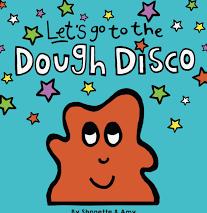
What on Earth does it mean?!
Acronyms
PP -pupil premium
SEND – special educational needs and disabilities
EYFS – Early Years foundation Stage
KS1/KS2 Key stage 1 or 2

BLP – Boarshaw Learning Plan
P Levels – Performance Levels
NC – National Curriculum
EAL -English as an additional language
EHCP- Educational, Health and care Plan
SEND Co – Special Educational Needs Coordinator
SALT – Speech and Language Therapist
EP – Educational Psychologist
OT – Occupational Therapy
ASD – Autistic Spectrum Disorder
FSM – Free school meals
















 Mrs Head Mrs Deputy SENDCo
Mrs Parr School Business Manager
Mrs Meehan Administrative Assistant
Evans Pastoral Lead Lead
Miss Miss Burns TA2+ Miss Halliday TA1+
Farrell TA1+ Ahmjad TA1+
Mrs Harland Head Teacher Mrs Facchin Deputy Head and SEND Co School business manager
Mrs Meehan School administrator
Mrs Evans Pastoral support Mrs Deadman SALT TA
Miss Burns TA2 Miss Ahmjad TA1
Mrs Farrell TA1 Miss Halliday
Mrs Head Mrs Deputy SENDCo
Mrs Parr School Business Manager
Mrs Meehan Administrative Assistant
Evans Pastoral Lead Lead
Miss Miss Burns TA2+ Miss Halliday TA1+
Farrell TA1+ Ahmjad TA1+
Mrs Harland Head Teacher Mrs Facchin Deputy Head and SEND Co School business manager
Mrs Meehan School administrator
Mrs Evans Pastoral support Mrs Deadman SALT TA
Miss Burns TA2 Miss Ahmjad TA1
Mrs Farrell TA1 Miss Halliday
























